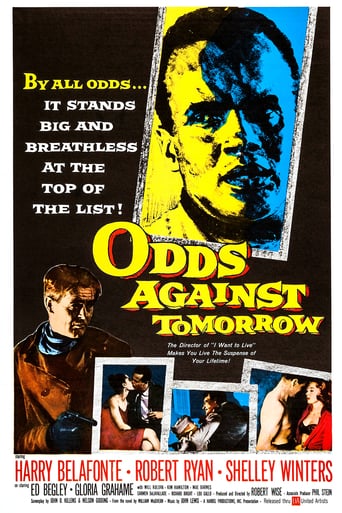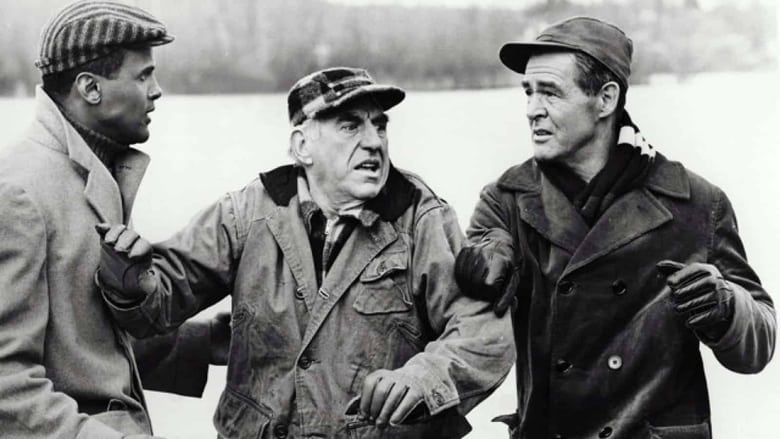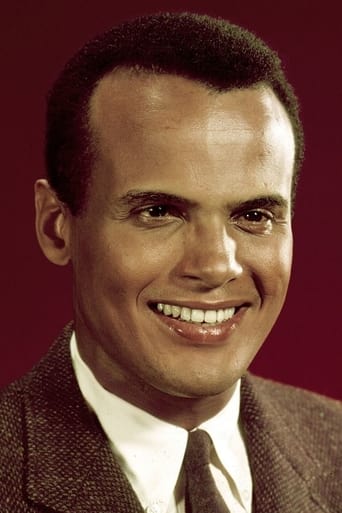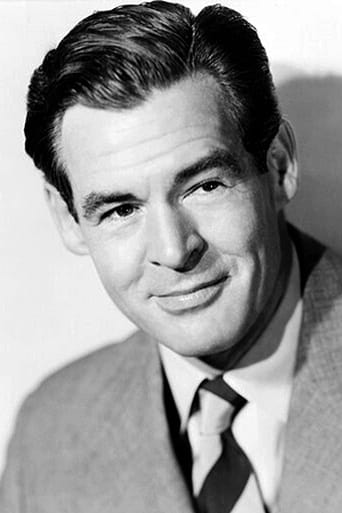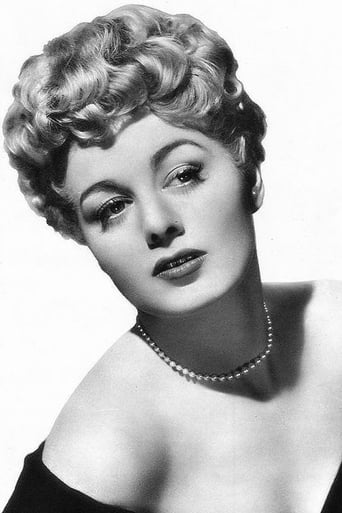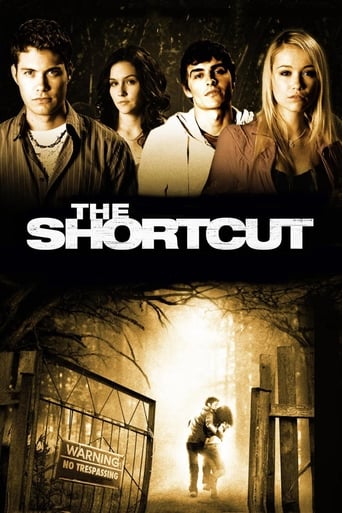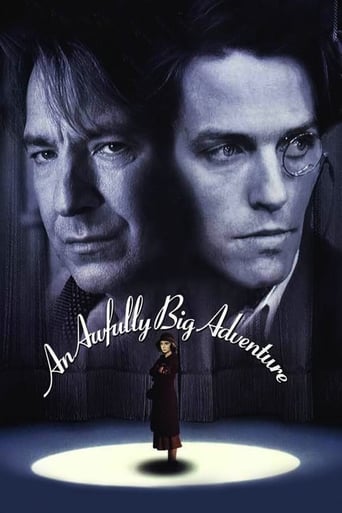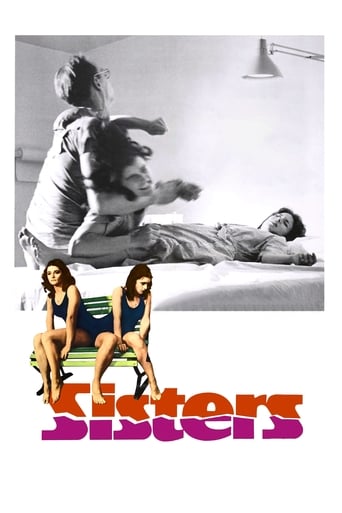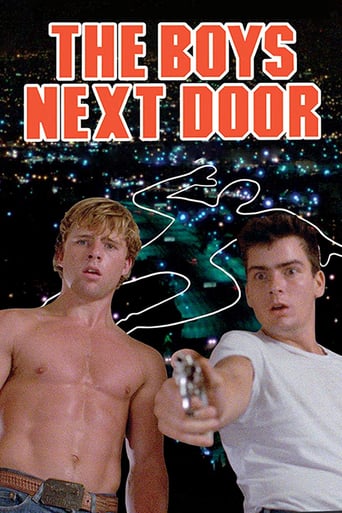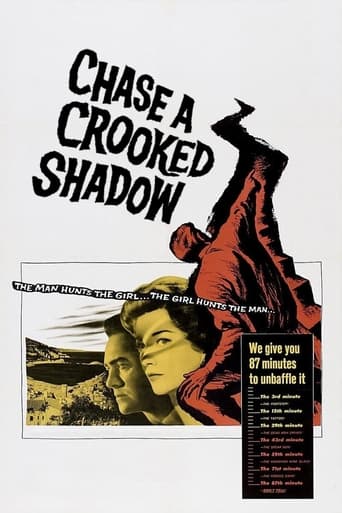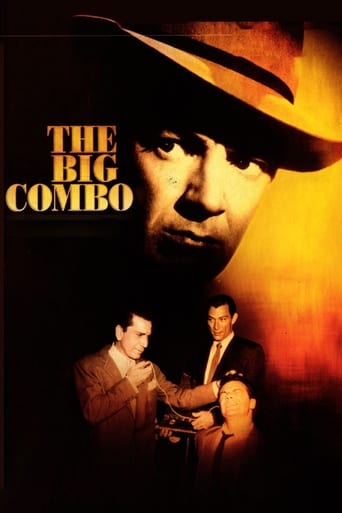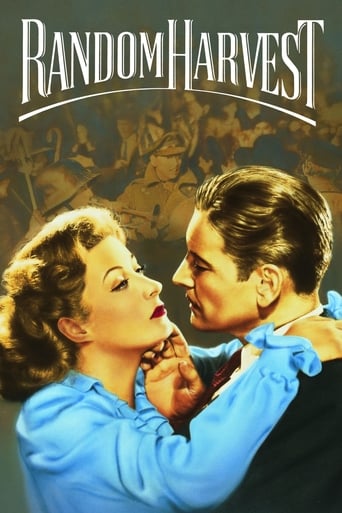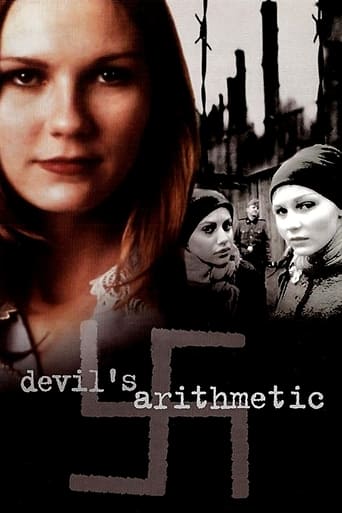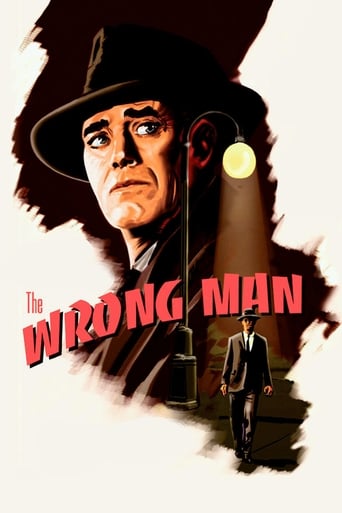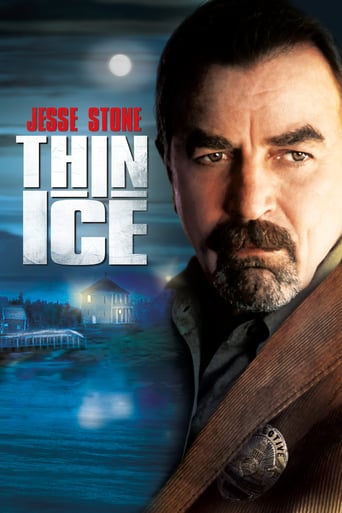Odds Against Tomorrow (1959)

An old-time crook plans a heist. When one of his two partners is found out to be a black man tensions flare.
Watch Trailer
Cast


Similar titles
Reviews
Pretty Good
hyped garbage
The acting in this movie is really good.
This is one of the best movies I’ve seen in a very long time. You have to go and see this on the big screen.
I returned to NYC a couple of months ago, late September I believe. It's taken me until this Christmas week to get back into the flow of big city life. I had spent the past year living on a mountain in Northern New England.. remote and peaceful but lonely and isolated. It was surreal watching films in my cabin miles away from everyone else, films that connected me so dearly to late night local television in NYC. The loneliness eventully overwhelmed me and I realized that I will return to this mountain home later in my life.. when i am much older and less anxious.So after one full year I returned to my apartment in Harlem. I took with me 250 of my most favorite films from my 1000 DVD collection, and one of my most adored of those 250 is Odds Against Tomorrow. This past thursday I took the subway down to Greenwich Village on a job search and walked across 13th Street, from 8th avenue. It could have been the holiday season, but passing the old townhouses and quaint street level restaurants touched a place in my heart, it triggered the affection and adoration of the old New York that had been buried deep inside my emotional gut. Being I'm in my late 40's my "old" New York is the mid 1970's.. but still such an atmospheric era. In the 1970's remnants of the 40's and 50's were still vivid; the restaurants, theaters and buildings and landmarks all took you back to those late night black and white movies that came on television.This reminiscent rant does have a purpose dear readers, it really does, and thanks so much for being patient.. at times I go to these emotional places, and this moment I really wanted to share with you.Odds Against Tomorrow is one of those special films that really connects the viewer to a city which once had such sincerity, authenticity and character that you bonded with it like it was a living breathing being. No, you dont have to be a New York native to understand.. you could be from a small town in Maine watching OAT and still feel that familiarity towards the big apple. The first scene which shows Robert Ryan walking down a side block and then turning onto Riverside Drive in Harlem will draw you in immediately. From Central Park West and the park itself to other unnamed streets where our characters live and social gives you a taste of old New York's duality.. it's grit and it's hospitality.There are one hundred better reviews to read than this one if you'd like an in depth description of the plot and characters of the film, because I won't delve into those too deeply. Yes, this is a film with a grave social commentary; racism, bigotry and how it can utterly be such a factor in the demise of humanity. It also manifests the birth of an evolving period in the city, with the jazz music and the cultural shifts that began occuring at the end of the 50's. But.. what I found to be most potent in the film was the undeniable connection alll three main characters had. Ryan, Belafonte and Begley were all so very desperate, all were unique and individual but they shared a common disparity, the need of money, a chance at a big bundle of cash, one which would give each one of them a fresh start.. a new beginning. As I said, the racist Ryan posturing at Belafonte fuels the engine of the film, but there is so much more to the characters than that. There are three generations of men here, all with dilemmas and turmoil and even we the viewers are convinced that the only way these characters can win is by robbing this bank in upstate New York.I believed these men. Who they were, how they felt, they convinced me of their flaws and fears, and I honestly felt for all of them, even the hateful Earl Slater. The depiction of these men could have been based on a real story.. and I've known men this desperate in my life, and I have myself, been behind the eight ball like Ingram, Burke and Slater.The supporting actors are brilliant as well. From each character at the Jazz club and the neighborhood bar to Shelley Winters, and Ms. Grahamm to the young gas attendent in upstate NY... such inividual conviction and character is evident even in the briefest performance in the film.The cinematography, of course is incredible. The stark, grey shots, the clouds and the lights clashing and the closeups and pans of the characters and landscapes are superior. The shadows and glares show brillance in both extremes.. interior or exterior, just incredible. I read that Robert Wise used a special film which affected the darks and lights of the movie. There are a couple of shots of Ed Begley's character that are quite moving and potent, this film almost conveys art in the sense of portraits of the characters. I also believe that Ed Begleys character doesnt get enough recognition, I felt him to be the most desperate of all three men, and in trying to keep Ryan and Belafonte from being at odds (pardon the pun) and unified, doubled his burden. Watch Begleys character closely, this is truly a brilliant performance. I wont reveal any spoilers, but there is a point in the film where I cried.I have watched this film sometimes twice a year since I have purchased it ten years ago, SO, I do suggest revisitng it every year to see how brilliant and amazing it is and so you will be able to see beyond the relevant but not singular social commentary. There are so many layers to the film which I continue to discover.After leaving thirteenth street I decided to walk uptown on 6th avenue for a while. Amidst the millions of corner banks and fast food restaurants, I peeked up side streets and saw old buildings that I remembered seeing when I was young. An old store front or diner occassionally remained and I smiled. I turned at Rockafeller Center and visited the tree. People were everywhere, smiling. taking pictures and ice skating. At that moment my heart ached and i walked speedily away from the crowds before anyone could see my tears. I had felt like a child again, a brief rememberance of old New York had appeared like a holiday ghost and reminded me of how good it once was to live here. Odds against tomorrow is a film that shares visions of that remembrance and how special New York City once was..Peace to all.
"You didn't say nothing 'bout the third man being a n*gger." That cold sun glares not only on the wintry New York streets, but also in the dialogues of Robert Wise's Odds Against Tomorrow, a noir implying to be about a bank heist. Actually, it's about the blues, one key scene playing in a nightclub with Harry Belafonte singing When That Cold Sun Goes Down - an intense and intimate performance, and probably the best song Belafonte ever did on or off screen. The tune quasi condenses the mood of the picture, the stark monochrome of the mise en scène, the agonizing rhythm of the doom closing in, and even the cursed melancholia of Robert Ryan's racist character, a rugged, achingly torn individual gone awry; just wait for the scene when he's provoked by some unwitting youngster in a bar. A grim study about desperation, desolation, and self-hate, OAT was a quite discomforting statement, and essentially the project of the man who played more than just the cool dude role here: co-producer Harry Belafonte, who certainly had a special notion of the "Blacklist" he'd been on during the McCarthy reign. In the meantime, he had made a trillion bucks with the godawful Banana Boat Song. Now, finally, he had found something that Day-O money was good for.
brilliant shooting by wise, great low-key winters, truly searing robert ryan who carries the movie, intense offbeat begley, unfortunately bogged down by belafonte- pop singer who is a stick on screen; of course the main point is race relations, and that's the part you wind up feeling as a preachy intrusion that almost cripples a stunning film noir crime drama heist rivaling some of the best like rififi; didn't need the help but john lewis score also tops , though also didn't need the minor showcase of belafonte doing his bit in a nightclub, but his company put up the money so he got some cameos; if you have the time to read up, wise shot standard aspect ratio, used infra-red film in some scenes; interesting that variety had it right, and tactfully, after the opening: " "On one level, Odds against Tomorrow is a taut crime melodrama. On another, it is an allegory about racism, greed and man's propensity for self-destruction. Not altogether successful in the second category, it still succeeds on its first." yup
Based on William P McGivern's novel of the same name, "Odds Against Tomorrow" is a hard hitting crime drama which tells the story of three men who join forces to carry out a bank heist. They all have powerful reasons for needing the enterprise to be successful but also, they all share a strong tendency to be self destructive.It's these characters and the interactions between them that drive the story along so effectively and also make the movie so compelling to watch. Their intense distrust of each other together with the racial intolerance which sours the relationship of two of the men creates an uneasy atmosphere which is complemented perfectly by Joseph Brun's wonderful photography and John Lewis' excellent score.Disgraced ex-cop Dave Burke (Ed Begley) plans to rob a small bank in upstate New York and recruits bigoted ex-convict Earle Slater (Robert Ryan) and compulsive gambler Johnny Ingram (Harry Belafonte) to assist him. Slater and Ingram both initially decline Burke's offer to be involved in the heist but for different reasons, both men are in desperate circumstances and the prospect of a $50,000 pay out offers them the best (and maybe only) chance they'll have of getting out of their current predicaments.Slater is a war veteran who's been unable to settle back into civilian life and has served a prison sentence for manslaughter. He's also unable to find employment and is supported by his loyal and warm hearted girlfriend Lorry (Shelley Winters). He finds this situation intolerable and harbours a great deal of bitterness and hostility. Slater is also a white racist who reacts badly to the prospect of working with Ingram who is black.Ingram is a talented nightclub singer but his addiction to gambling has left him deeply in debt to a mobster who has threatened to kill him, his ex-wife and his young daughter unless he pays up promptly. Ingram's less than relaxed acceptance of Slater's intolerance doesn't auger well for their ability to work together successfully and despite Burke's best efforts to calm the waters between them, their antipathy to each other remains intense.Predictably it's the distrust between these two men which eventually causes their greatest problem in carrying out the heist as planned and leads almost inevitably to the movie's violent and spectacular climax.The power of Slater's anger and instability is consistently evident in Robert Ryan as he often appears to be just about ready to explode with the sheer intensity of his destructive feelings. Harry Belafonte and Ryan are both impressive in their roles and Ed Begley is also memorable as the enthusiastic mastermind of the job who tries in vain to cajole his two partners into working together like reasonable people.The allegorical nature of the story is strong as it conveys incredibly forcefully just how futile, petty and damaging the men's behaviour is and how it even prevents them from serving their own best interests. The movie's title (which is so appropriate for a film noir) also reinforces this message very effectively.

